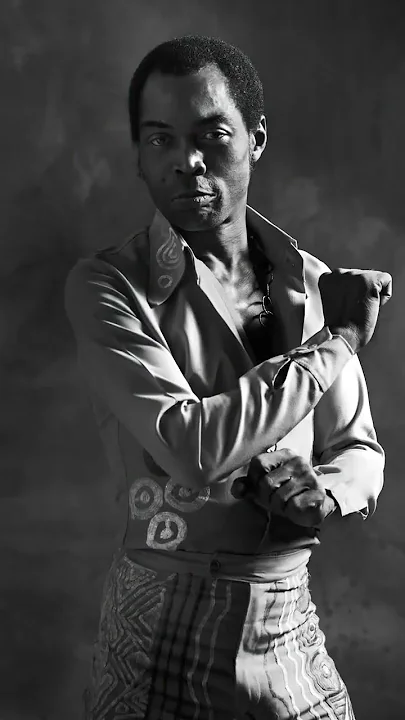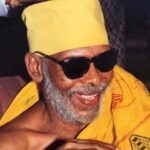KUTI, FELA ANIKULAPO
- 3 Min Read
Fela Anikulapo Kuti (15 October 1938 — 2 August 1997) was a Nigerian multi-instrumentalist musician and composer, a pioneer of Afrobeat music, a human rights activist, and a political maverick.

PHOTO CAPTION: Fela Anikulapo Kuti. SOURCE: Bernard Matussiere
Fela was born Olufela Olusegun Oludotun Ransome-Kuti in Abeokuta, Ogun State, Nigeria, into a middle-class family. His mother, Funmilayo Ransome-Kuti, was a feminist activist in the anti-colonial movement and his father, Reverend Israel Oludotun Ransome-Kuti, a Protestant minister and school principal, was the first president of the Nigerian Union of Teachers.
Fela was sent to London in 1958 to study medicine, but decided to study music instead at the Trinity College of Music. While there, he formed the band Koola Lobitos, playing a fusion of jazz and highlife. In 1963, Kuti formed a band called Koola Lobitos. He would later change the band’s name to Afrika 70, and again to Egypt 80. He moved back to Nigeria, re-formed Koola Lobitos and trained as a radio producer for the Nigerian Broadcasting Corporation.
His politically charged songs, which decried oppression by Nigeria’s military government, prompted authorities to routinely raid his club, looking for reasons to jail him. Fela also set up a communal compound, which he proclaimed the independent Kalakuta Republic. As head of the commune, he often provoked controversy and attracted attention by promoting indulgence in sex, polygamy (he married 27 women). A 1977 raid on the complex by Nigerian authorities resulted in his brief incarceration and the death of his mother the following year due to complications from a fall. In exile in Ghana in 1978, he changed his name from Ransome to the tribal Anikulapo.
Despite the massive setbacks, Fela was determined to come back. He formed his own political party, which he called the Movement of the People. In 1979, he put himself forward for President in Nigeria’s first elections for more than a decade, but his candidature was refused.
Five years later, he was jailed for 20 months on charges of currency smuggling. Upon his release, he turned away from active political protest and left his son, Femi, to carry the torch of Afro-beat music. Fela was jailed again in 1993 for murder, but the charges were eventually dropped.
Fela thought that the most important thing for Africans to fight was European cultural imperialism. He was a supporter of Pan-Africanism and socialism, and called for a united, democratic African republic. He died as a result of complications from AIDS.
EA EDITORS




